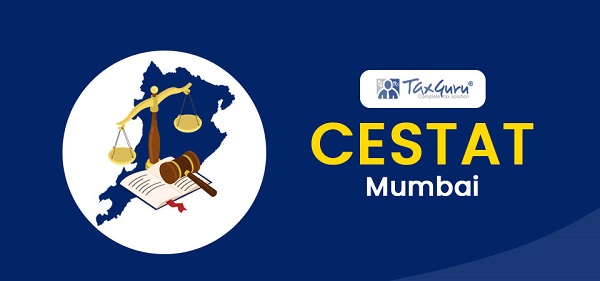Case Law Details
Brief of the Case
Delhi High Court held In the case of Haryana Paneer Bhandar vs. CIT. that the Revenue has been unable to produce the satisfaction note of the AO of the searched person. Consequently, on this short ground of there being no satisfaction note, which is a mandatory requirement under Section 158BD.
Facts of the Case
The Assessee is a partnership firm engaged in the business of manufacture and sale of paneer and snack item. A search and seizure operation was conducted on 15th December, 1997 at the premises of one Mr. Kamal Chand Jain, wherein certain hundis as stated to have been issued by him were seized. It appears that the some of the hundis which purportedly pertained to the Assessee were forwarded by the AO of Mr. Jain to his counterpart having jurisdiction over the Assessee herein. Subsequently, the AO having jurisdiction over the Assessee recorded the reasons for reopening of the assessment and proceeded to issue a notice to the Assessee under Section 148 of the Act on 29th January, 2001. A re-assessment order was passed by the AO on 28th March, 2002 making an addition of a sum of Rs.65 lakhs to the income of the Assessee under Section 69D.
Subsequently on the direction of CIT (A), a notice was issued to the Assessee under Section 158BD for the block period i.e. 1988-89 to 1998 to 1999. The Assessee filed its return for the said block period on 10th November, 2008 and asked for a copy of the satisfaction note in terms of Section 158 BD of the Act. No copy of such satisfaction note was provided to the Assessee. The AO nevertheless proceeded to complete the block assessment by an order dated 29th September, 2008 and made an addition of Rs.6,85,120/-
Held by CIT (A)
CIT (A) upheld the order of the AO.
Held by ITAT
ITAT dismissed the appeal of the revenue.
Held by High Court
Section 158BD requires the AO of the searched person to record a proper note of satisfaction that there is “cogent and demonstrated material” to conclude that the seized documents show that some undisclosed income belongs to a person other than the searched person. Explaining the mandatory nature of this requirement, the Supreme Court in Commissioner of Income-Tax v. Calcutta Knitwears (2014) 362 ITR 673 (SC) held that “for the purpose of section 158BD of the Act a satisfaction note is sine qua non and must be prepared by the Assessing Officer before he transmits the records to the other Assessing Officer who has jurisdiction over such other person. The satisfaction note could be prepared at either of the following stages: (a) at the time of or along with the initiation of proceedings against the searched person under section 158BC of the Act; (b) along with the assessment proceedings under section 158BC of the Act; and (c) immediately after the assessment proceedings are completed under section 158BC of the Act of the searched person.”
Also in the case of Commissioner of Income Tax v. Sunil Bhala (2011) 336 ITR 50 (Del) the Court held that the AO of the searched person “has to record satisfaction to the effect that there was undisclosed income belonging to the assessee. In the absence of there being any recording of the satisfaction of the AO while forwarding the case to the AO of the ‘other person’, the block assessment proceedings were held to have been rightly invalidated. In Commissioner of Income Tax v. Feather Breweries & Market (2008) 166 Taxman 271 (Del) the Court noted that the Revenue “is unable to produce the satisfaction recorded by the Assessing Officer in terms of Section 158 BD of the Act” and held that the in view of the decision of the Supreme Court in Manish Maheshwari v. Asst. CIT (2007) 289 ITR 341 (SC), the block assessment proceedings were unsustainable in law.
In the present case, as already noticed, the Revenue has been unable to produce the satisfaction note of the AO of the searched person, to the effect that there was “cogent and demonstrative” material to conclude that the seized documents showed undisclosed income belonging to the Assessee. The absence of such satisfaction note on the file also explains why the AO resorted to Section 147 of the Act to reopen the assessment in the first place instead of issuing notice under Section 158 BD of the Act. Consequently, on this short ground of there being no satisfaction note, which is a mandatory requirement under Section 158 BD of the Act, as explained by the Supreme Court in Commissioner of Income-Tax v. Calcutta Knitwears (2014) 362 ITR 673 (SC), the entire block assessment proceedings are held to be bad in law. Question (b) is accordingly answered in the affirmative and in favour of the Assessee and against the Revenue. In view of the answer to question (b), the answer to question (a) has also to be in the affirmative i.e. the in the circumstances of the present case, the notice under Section 158-BD issued to the Assessee is held to be bad in law.
Also section 158BE(2)(b) makes it clear that the limitation period for completion of a block assessment in the case of the person other than the searched person, which in the present case is the Assessee, is “two years from the end of the month in which the notice under this Chapter was served on such other person….”. Although the said notice under Section 158 BD was served on the Assessee only on 25th September 2006, i.e. nearly nine years after the search of the premises of Mr. Jain, the said notice was itself bad in law since it was not preceded by the recording of a note of satisfaction which was a sine qua non.
Accordingly, appeal of the revenue dismissed.



















